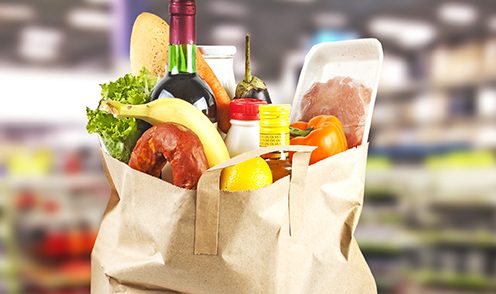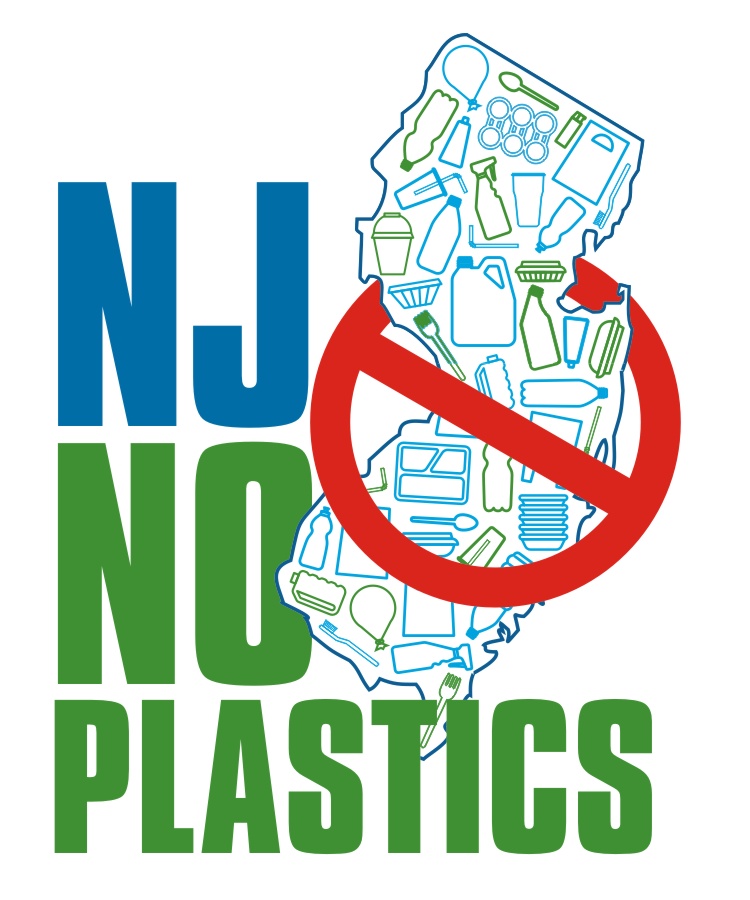Should my business support reducing single-use plastics?
Yes, it’s the new law but there’s tremendous added benefits to reducing disposables including enriching the dining experience, preventing unsightly litter near your business, lowering waste collection costs, and fostering community unity.

Only Grocery stores over 2,500 square feet. Stores over 2500 square feet that ONLY handle prepackaged foods that do not require time or temperature controls for food safety are exempt from the ban on paper bags.
Bags provided by a pharmacy to carry prescription drugs
Laundry, dry cleaning or garment bags
Newspaper bags
Bags used solely for loose items such as fruits, vegetables, nuts, coffee, grains, baked goods, candy, greeting cards, flowers or small hardware items
Bags used solely to contain live animals, such as fish or insects sold in pet stores
Bags used solely to contain food sliced or prepared to order, including soup or hot food
Bags used solely to contain or wrap uncooked meat, fish, or Poultry
Yes, similar to stores such as Costco, customers can put items directly into grocery cart.
After a ban on foam containers takes effect, other products made from the same polystyrene material would have another two-year grace period before being banned, starting in May 2024. They are:
Disposable, long-handled polystyrene foam spoons for thick drinks (e.g., 7-11 slushy spoons)
Small cups of two ounces or less used for hot foods
Meat and fish trays for raw or butchered meat, including poultry, or fish that is sold from a refrigerator (e.g, pre-packaged Perdue fresh chicken)
Any food pre-packaged in polystyrene by the manufacturer (e.g., Cup of Noodles)
Reusables are the best alternative to help reduce costs and promote environmental stewardship
Products made from plants as they decompose much better in compost and the environment: Bagasse (sugarcane fiber), Wheat straw, Silver grass, Palm Leaf, Bamboo, Wood, Uncoated Paper
If switching to plastic, confirm that’s it acceptable via county recycling standards. Generally, only plastic types 1 and 2 are acceptable and no dark/black plastic regardless of type.
To avoid hidden hazards in disposable food ware, consult the Center for Environmental Health’s Safer Foodware Guide.
Find paper and wood products certified sustainable by the Forest Stewardship Council.
Please refer to
Business.NJ.Gov to register for vendor list:
https://business.nj.gov/bags/vendors
NJDEP upon written application by a person or food service business, may waive requirements for up to one year IF:
(1) there is no feasible and commercially available alternative for a specific polystyrene foam food service product; or
(2) the person or food service business has less than $500,000 in gross annual income and there is no reasonably affordable, commercially-available alternative to the polystyrene foam food service product.
Any business violating the bill would get a warning on first offense, a fine up to $1,000 for a second offense and a fine of up to $5,000 for a third or subsequent offense, to be collected through civil action.
70% of the penalties will be remitted to the State into the Clean Communities Fund.
30% of the penalties will be remitted to the municipality.
A food service business must maintain an adequate supply of single-use plastic straws to provide at the request of customers. Customers with a disability might require a straw.
The American Disability Act stipulates that you cannot ask a customer how or to prove they are disabled.
Check inventory levels and order acceptable items under law
Consider doing a Plastic Waste Audit [ click here]
Consider switching to 100% reusables
Post “Did you remember your reusable bag?” signage in parking lots and in front of stores.
Train staff to confirm if the customer needs a single-use bag
Create new process for home delivery without plastic bags (considering switching to returnable plastic totes or cardboard boxes)
1. Reducing the amount of disposable plastic will save your business money. Use the Plastic Footprint Tool to help identify what types of disposable plastics are used and the costs: https://www.surveygizmo.com/s3/4319172/Plastic-Footprint
2. Use a Foodware Care Cost Calculator to project the cost savings you will achieve by reducing disposable plastics at your food business: https://www.productstewardship.us/page/FoodwareCalculator
3. Develop a Strategy Get Tools, Tips & Resources with the FREE Guide: 5 Easy Steps to Reduce Plastic and Benefit Your Business: https://www.productstewardship.us/page/RestaurantGuide
Yes, reusables are safe. Answers to most frequently asked questions:
https://anjec.org/action-alerts/
Explore Free Oceanic Global’s COVID-19 Plastic-Free Reopening Guidelines for Restaurant + Hotel Food Service
Read: The Safety of Reuse During the COVID-19 Pandemic Service
1. The New Jersey Sustainable Business Registry was created to recognize and promote sustainable businesses, nonprofit organizations and higher education institutions across the state. The Registry is open to companies of all types and free to join. Recognizing and promoting NJ sustainable businesses with access to consultants at no cost, shared resources and business promotion. http://registry.njsbdc.com
2. Join Surfrider’s Ocean Friendly Restaurants program to become a certified “Ocean Friendly Restaurant” and gain national and local recognition: https://www.surfrider.org/programs/ocean-friendly-restaurants
3. Get Tools, Tips & Resources with the FREE Guide: 5 Easy Steps to Reduce Plastic and Benefit Your Business: https://www.productstewardship.us/page/RestaurantGuide
4. Contact Clean Water Action’s ReThink Disposable project, a technical assistance program that helps restaurants reduce disposable products. Their Reusable Food Serviceware Guide, educational graphics, and other helpful resources are available online. http://www.rethinkdisposable.org/
5. For guidance on restaurant sustainability, visit the Green Restaurant Association:
http://www.dinegreen.com/green-my-restaurant
